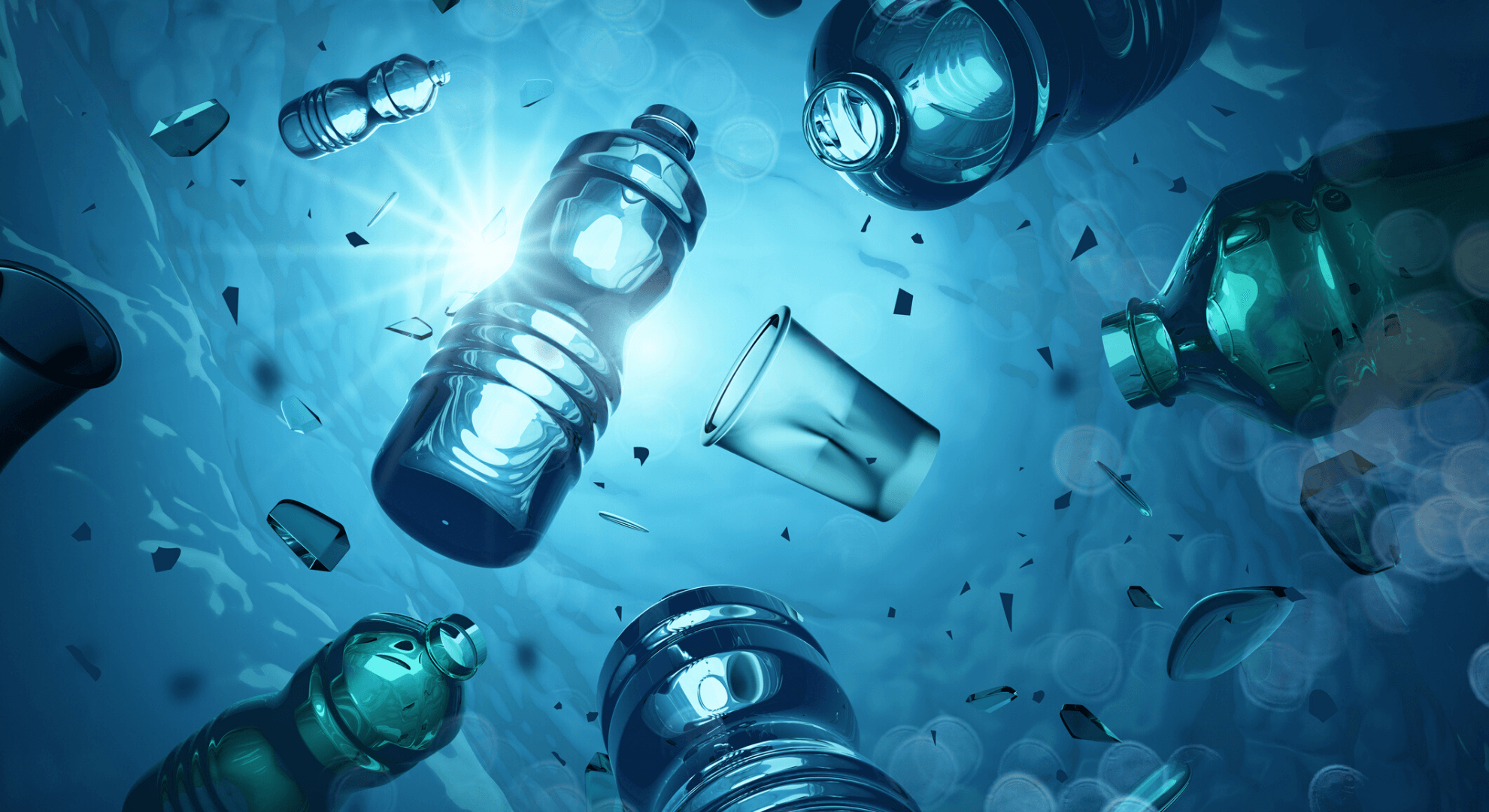
What is marine litter?
Much of the litter dropped on land - like drinks bottles, crisp packets and cigarette butts - makes its way to the sea through our drains, rivers, canals and other waterways along with materials flushed down toilets and waste from manufacturing products.
Marine litter pollution is a global issue. Since plastics are so common in our lives, and they don’t break down, around 70% of all litter in the oceans is made of plastic. However, litter is litter no matter what material it’s made of.
Microplastics are tiny particles of plastic that have either fragmented or worn down from larger pieces of plastic or have been manufactured at that size for a particular purpose, like microbeads in cosmetics, or nurdles - the plastic pellets used to manufacture products.
These might be harder to see in the environment, but they still have an impact.
Plastic and other forms of litter pollution can endanger marine wildlife through entanglement in floating items or ingestion of materials, impacting their health and potentially their survival.
Toxic pollutants found in the environment have shown to be attracted to the surface of plastic pollution, and additives within the materials themselves leach out and have the potential to impact human health through the food chain
There is also an impact on tourism - rubbish-strewn beaches aren’t usually top of the list for holiday snaps - and nobody wants to stamp on glass at the beach. Then there’s the potential damage to boats and ships.
340,860 disposable tampons and pads are being flushed down toilets in Scotland every day.
How can you help prevent marine litter?
The devastating consequences of marine litter can be avoided. Eating and drinking on-the-go is on the rise, you can help by reducing your use of single-use items by avoiding them in the first place or switching to reusables such as coffee cups, water bottles and cutlery.
Don’t flush anything other than pee, poo or paper down the toilet. Flushable wipes are often not as flushable as they say. The wipes don’t degrade as often they contain plastics and are commonly found washed up on beaches or clogging the sewer network.
Sanitary products are also regularly flushed down the toilet to enter the marine environment. Instead, try reusable sanitary products to help reduce the impact of the disposables.
Cigarette butts are one of the most common types of litter and should be stubbed out and disposed of in a bin. Butts dropped on the ground or in a drain can make their way to the sea through wastewater systems.
They contain highly toxic chemicals which pollute our marine environment and also contain plastic in the filters which degrades slowly.
Be responsible and make sure all items are discarded in an appropriate bin. If the bin is overflowing hold on to your rubbish until you find a better choice. Keep your bins at home secure so materials can’t escape from them, use a brick to keep the lid down on windy days.
As pretty and fun as balloon releases, duck races, fireworks and throwing confetti can look, these items have to end up somewhere and often get washed into the sea or pollute our land environment. Look for options that will have less of an impact like blowing bubbles or confetti made from autumn leaves.
Many of the items dropped on land - like drinks bottles, crisp packets and cigarette butts - make their way to the sea through our drains, rivers, canals and other waterways.
Things to do
Use reusables – like straws, coffee ups, water bottles and cutlery - when out and about.
Remember the 3 P’s – only pee, poo or paper gets flushed down the toilet.
If you can’t find somewhere to bin your rubbish, hold onto it till you find a bin or get home.
Avoid balloon releases, duck races, fireworks and throwing confetti as these often get washed into the sea.
